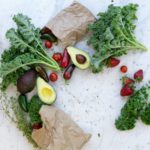Holiday Eating
When the holidays arrive, many people forget all about their diets and healthy eating. Weight gains of 7 – 10 pounds are common between Halloween and Christmas. To make the holidays easier, these tips will help you with healthy eating through the season and not gain weight.
Traditional Foods
Most traditional foods can be made low fat. Turkey is very lean without the skin and gravy can be made without any fat. Potatoes that are served without butter can be very healthy. The beloved pumpkin pie is nutritious, although it can be made into a fatty dessert with the addition of whipped cream.
Even though the holidays are in, don’t forget about exercise. Keeping weight off during the holiday season is burning off the extra calories. You should plan a walk after meals, park farther from stores when you shop, and take a few walks around the mall before you begin shopping.
During holiday parties and at family dinners, feel free to sample foods although you shouldn’t splurge. Decide on what you plan to eat in advance, then stick to your plan. Eat plenty of vegetables, fruit, low-fat dressings, and slices of lean meats. Before you go to a party, eat a small snack to help curb your appetite.
If at all possible, avoid alcohol. Having too many drinks can cripple your willpower, and also add excess calories to your diet. In the place of alcohol, drink water with lemon. Water can help to limit your appetite and keep you from binging. Also make sure to avoid eggnog, as each glass can have up to 300 calories.
Be flexible with your healthy eating, as one bad meal won’t ruin your diet. Try to balance your calories over a few days and don’t just look at one meal or day.
DISCLAIMER:
This information is not presented by a medical practitioner and is for educational and informational purposes only. The content is not intended to be a substitute for professional medical advice, diagnosis, or treatment. Always seek the advice of your physician or other qualified healthcare providers with any questions you may have regarding a medical condition. Never disregard professional medical advice or delay in seeking it because of something you have read.
Since natural and/or dietary supplements are not FDA-approved they must be accompanied by a two-part disclaimer on the product label: that the statement has not been evaluated by FDA and that the product is not intended to “diagnose, treat, cure or prevent any disease.”





